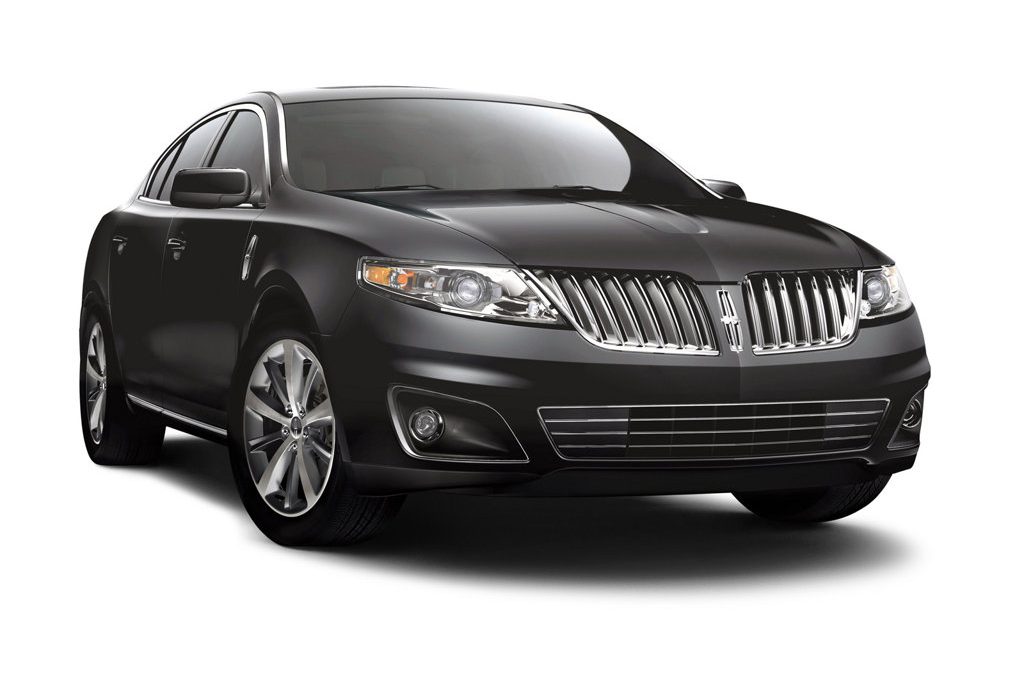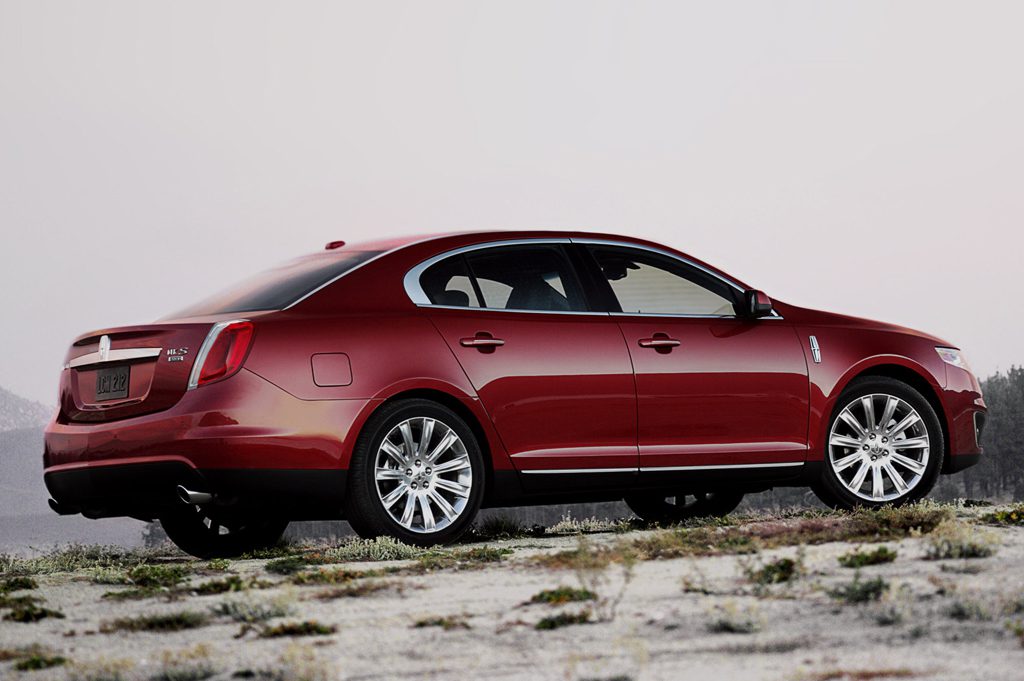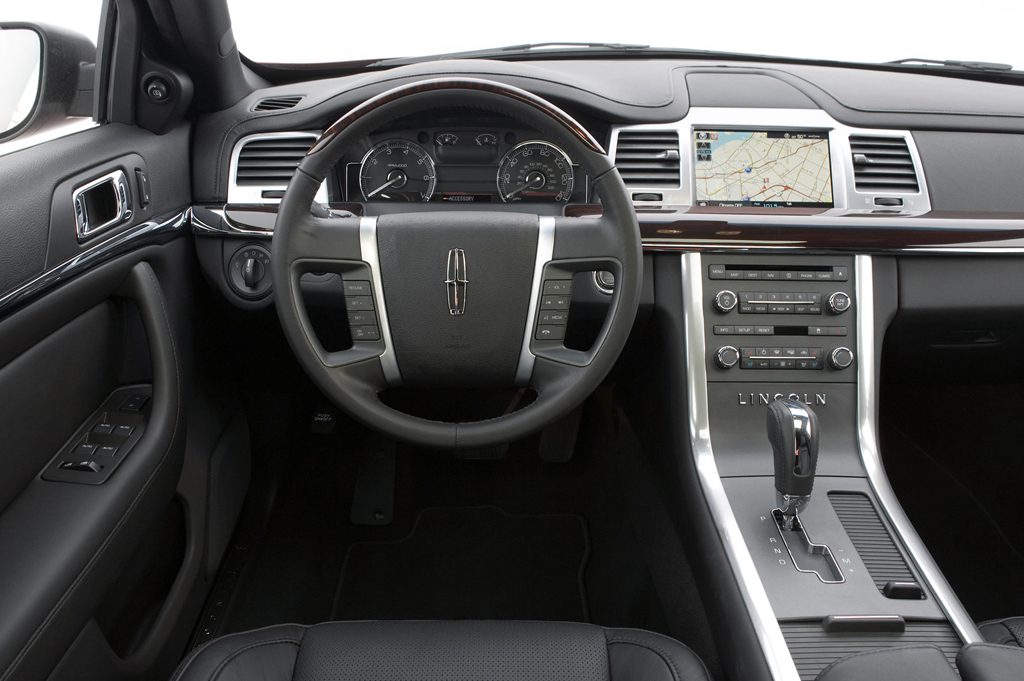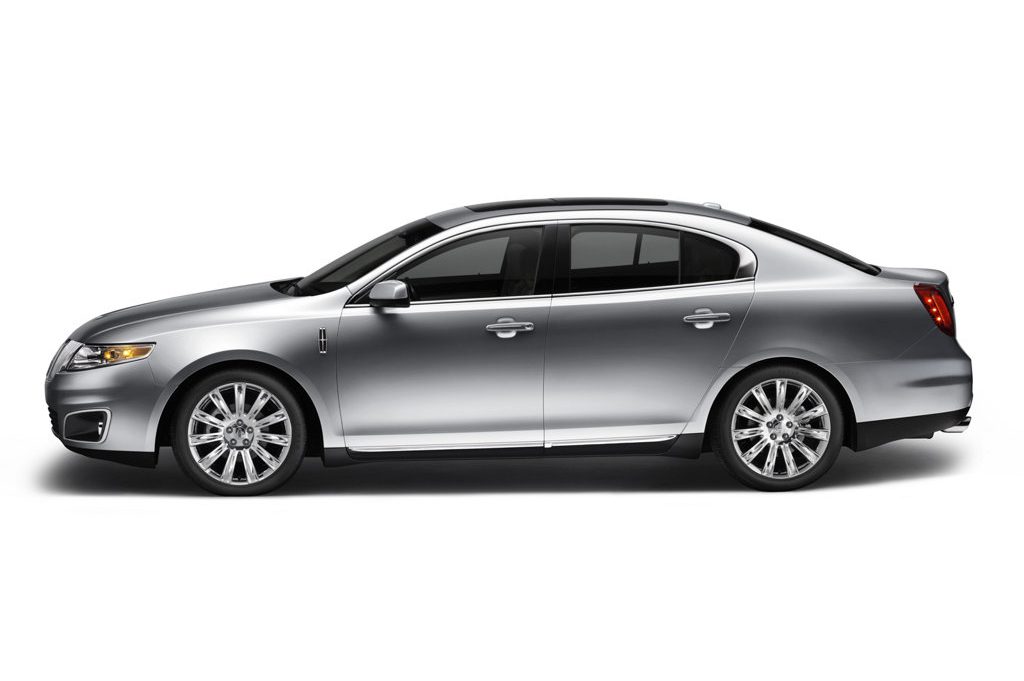| Premium large car; Built in USA |
|
|
| Good condition price range: $10,200 – $31,300* |

2009 Lincoln MKS Front

2009 Lincoln MKS Rear

2009 Lincoln MKS Interior

2009 Lincoln MKS Profile
| Pros: |
|
| Cons: |
|
Lincoln’s latest flagship aimed for a contemporary spin on traditional American luxury, while still focusing on serene comfort instead of invigorating performance. Despite a generous list of standard luxury features and some unique high-tech gadgetry, MKS’s overall refinement trails luxury-class leaders.
Overview
Introduced for 2009, Lincoln’s MKS was the new flagship sedan from Ford’s luxury division. This premium full-size four-door sedan shared some of its basic design with the Ford Taurus and Mercury Sable. The double-wing grille was said to be inspired by the classic 1941 Lincoln Continental. Lincoln’s MKS held a 3.7-liter V6 engine that produced 275 horsepower when running on premium-grade gasoline, or 273 hp on regular. A new SelectShift six-speed automatic was the sole transmission, mating with either front-drive or all-wheel drive. Standard safety features included antilock brakes, traction control, an antiskid system, curtain side airbags, and front side airbags. Bridge of Weir leather upholstery was standard, some models were trimmed with ebony wood, and the leather-wrapped MKS steering wheel featured wood trim at the top. Standard heated/cooled, 12-way power driver and front-passenger seats incorporated four-way lumbar adjustment.
Lincoln claimed the largest rear-door openings in its class. The standard capless fuel-filler system allowed owners to fill their fuel tanks without having to remove a gas cap. Also standard was Ford’s Sync, which offered voice control for cell phones and MP3 players. Other available features included a voice-activated navigation system with real-time traffic updates, front-obstacle detection, a rearview camera, keyless entry and pushbutton starting, 20-inch wheels, and adaptive cruise control. Rivals to the MKS included the Cadillac DTS, Lexus ES 350, and Volvo S80.
Yearly Updates
| 2010 MKS A new engine option debuted for 2010. Available for all-wheel-drive MKS models, Ford’s new “EcoBoost” twin-turbocharged 3.5-liter V6 made 355 horsepower. Both engines worked with a six-speed automatic transmission. Newly optional was a system designed to provide hands-free parallel parking-a feature first offered on Lexus’s top LS model. |
| 2011 MKS The 2011 Lincoln MKS is largely unchanged. |
| 2012 MKS Newly available on the Lincoln MKS for 2012 was blind-spot alert and cross-traffic alert, but there were no other changes. |
| 2013 MKS The 2013 MKS received a new look, revised suspension tuning, and additional safety and technology features, but its platform and engine choices were unchanged. |
| 2014 MKS The rearview camera, formerly available only in an option package, was made standard for the 2014 MKS. Otherwise, only paint colors changed. |
